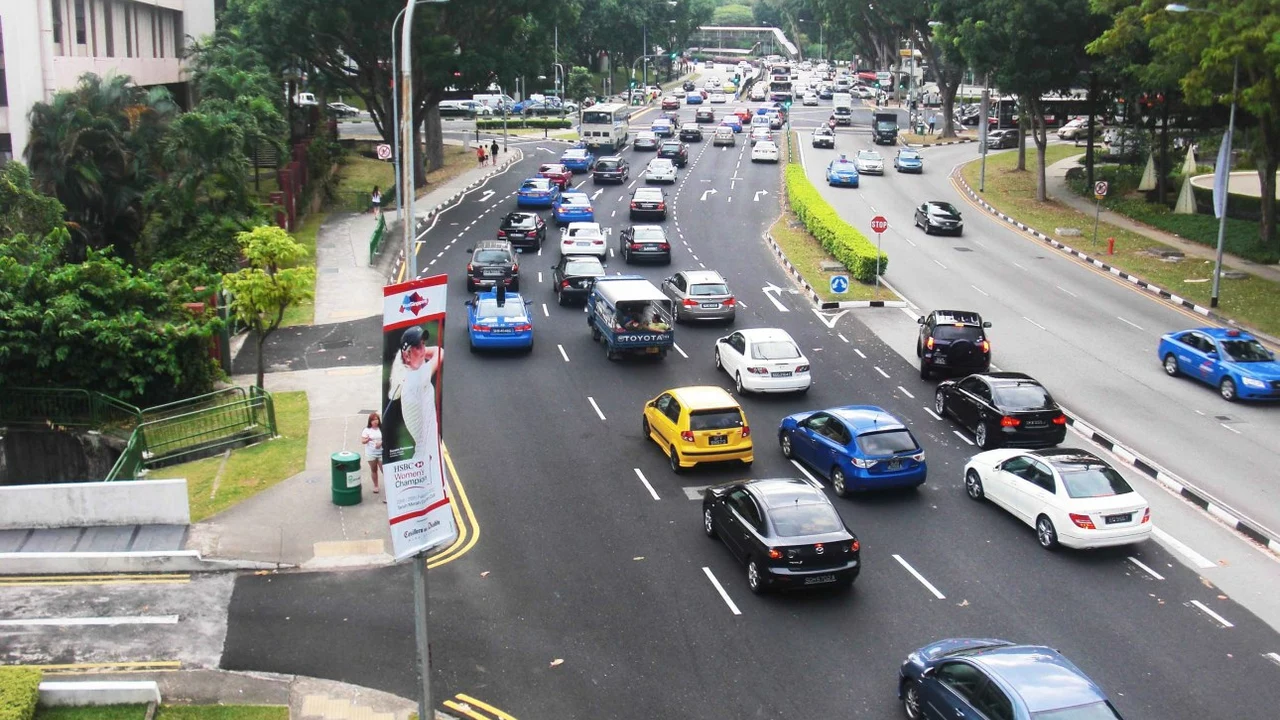Why are racing cars illegal on the road?
2 Aug, 2023The Mystery Behind the Legality of Racing Cars on Roads
Has anyone ever wondered why racing cars are prohibited on usual roads? Well, I did. One time during dinner, my son Lyle asked, "Dad, why can't race cars be driven on the road?" This question served as a spark, igniting the curiosity deep inside me, an itch that made me probe into the intricacies of the relationship between racing cars, law, and the average road.
I'm a passionate lover of racing cars and so is my family. Felicity, my better half, used to be a top-tier racing car driver. Ah, those were the days, her in a stylish racing suit, the crowd cheering, wind blowing...oops, getting carried away. Anyway, back to topic. Our shared fondness for roaring engines and the sudden adrenaline surge generated by speed puts us in the arguably small demographic of folks who wonder why these beasts of speed and power are banned from prowling the everyday streets. Now, let's dive deep into the five main reasons why racing cars are prohibited on the road.
Design and Safety Standards
Racing cars are pretty cool but they are designed to run under specific conditions. Their low-ground clearance level, which is perfect for smooth, race tracks can't go well with your everyday road filled with potholes, bumps, debris, and not to mention, the dreadful speed bumps. Eeesh!
Also, racing cars lack the basic amenities like headlights, taillights, indicators and mirrors. They're built for speed, not for Sunday drives to the local grocery store. Although it would be incredibly cool to zip to the grocery store in a Formula 1 car, it wouldn't be too practical, would it? And of course, not very safe either.
Noisy Beasts Unleashed
Have you ever tried sleeping next to a roaring Lion? It's equivalent to having a racing car blasting off on your local residential street. These machines make an audible statement, some more than others, and while it can be music to some ears, your neighbors might not share your enthusiasm and might just call the cops on you for breaking the peace.
So, it seems like the hum of a racing car engine, much like the roar of a lion, is best reserved for specific environments and circumstances, don't you think?
The Double-edged Sword of Speed
The one thing that racing cars are known for and are amazing at is their incredible speed, which can be a double-edged sword. In controlled environments with professionals behind the wheel, speed is exhilarating. However, on public roads, speed is a serious threat to safety.
Simply put, driving a racing car on the street is like setting a cheetah loose in a kindergarten playground. Fun for the cheetah, maybe, but I don’t imagine the children being very pleased.
Emission Standards: A Cloudy Issue
Every now and again, we see those viral social media posts about some celebrity's humongous, gas-guzzling SUV, or that one friend who proudly shows off the truck that belches out fumes like they're going out of style. Truth is, these high-performance racing vehicles don't meet the stringent emission standards set for road-legal cars.
So, if you're thinking about cruising around your local neighborhood in that bright red Ferrari, think about the carbon footprint you'll be leaving behind. Mother nature will thank you for it.
Comfort and Convenience
Racing cars, as gloriously fast and furious as they are, haven't been designed for comfort and convenience, two features that are essential for everyday travel. Since racing cars lack essential features like air conditioning, power steering, and comfortable seats, driving one under 'normal' circumstances would be tantamount to self-inflicted torture.
Imagine this. You're stuck in rush hour traffic, on your way to work, in a noisy, shaky racing car, with no air conditioning, no power steering, and the guy next to you is just relaxing in his minivan, sipping his coffee. Not so cool anymore, is it?
Concluding Thoughts
So, as it turns out, racing cars are illegal on the road for a plethora of reasons ranging from design and safety standards, noise, speed, environmental emission standards to lack of comfort and convenience. Now when Lyle asks me about racing cars, I can offer him more than just a mumbled, "they're just too fast, son."
To sum up, a racing car on a racetrack is a thing of joy and wonder, a symphony of engineering genius, ferocious horsepower, and death-defying stunts. An opera for the adventurous. But a racing car on a regular road is an odd, ill-fitted spectacle, sort of like having a grizzly bear at a tea party. Best keep them in their natural habitats.

 by
by